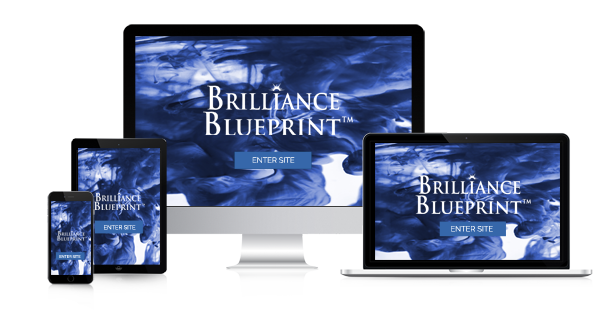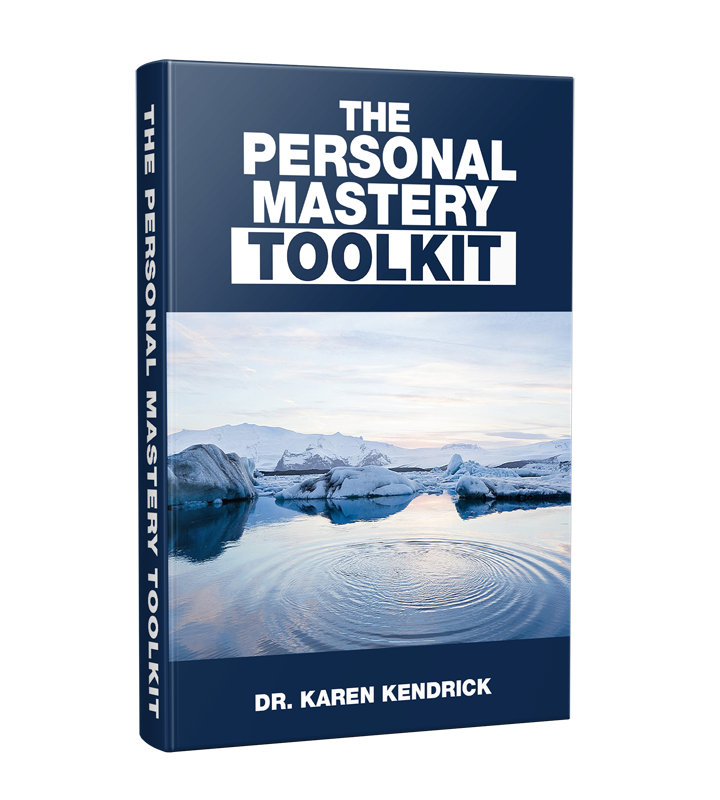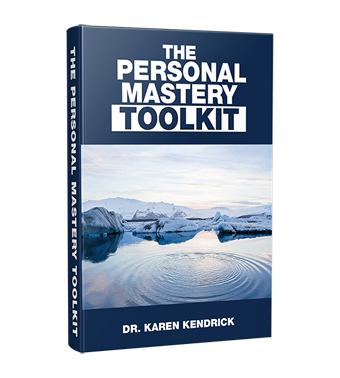12 Strategies for Boosting Your Confidence
ABOUT THE EPISODE
Want to reduce those moments of self-doubt that come up? Discover 12 strategies you can use to boost your level of confidence.
TRANSCRIPT
Don’t kid yourself. There’s not one person on the planet who’s 100% confident 100% of the time. We all have self-doubt on occasion, and sometimes more often than that. But we can boost our confidence significantly. We just have to use the right tactics.
Hey, Everyone, it’s Dr. Karen Kendrick, and Welcome back to Mastery Now. It’s good to be with you here again. And as I recorded this, right now, I know there’s a major global heat wave going on. So if this is impacting you, I hope you’re staying cool and getting some relief soon.
In this week’s episode, I want to dig into the concept of confidence. It’s such an important component to how we experience life, and without a healthy amount of it, it’s a lot harder to thrive and accomplish what you want. That’s because our self-doubts influence how we feel and our outlook on life and our physicality, as well as our decisions and actions and habits.
When you think about it, if we don’t have enough self-confidence, we tend to take fewer good risks, we don’t go after the things we really want, we tend to have more stress and anxiety, and we tend to settle for relationships or situations that don’t serve or fulfill us.
So our self-doubts can really derail our dreams and goals and well-being. And yet I know a number of us struggle with these feelings of self-doubt from time to time.
There was a study done by The Body Shop that surveyed 22,000 people in 21 countries at the end of 2020. Now, granted, the pandemic was going on at this time, but I do think it’s still relevant here.
So what the study did was it created a Self-Love Index, and it looked at the opinions people have of their self-esteem, self-respect, confidence, self-worth, relationships with others, control over life, overall well-being, and their frequency of feeling negative emotions. They also looked at the stability of these opinions over time.
And what they found was that the average score on this Self-Love Index on a scale of 0 to 100, was 53. Meaning that almost half of the people surveyed had more self-doubt than self-love. And in addition to that, 60% of the people across the globe wished that they had greater self-respect for themselves. And 35% said that they didn’t have much to be proud of.
So I know this is pretty discouraging with statistics like these, I thought that it might be useful to spend some time on this topic.
Now, as we go through this, I want you to keep in mind that we all have some areas that we’re more confident in than others. Some people can be very confident in terms of their body image, but maybe they’re less so in terms of managing their finances. Others might be more confident in terms of their relationship skills, but maybe feel uncomfortable in terms of speaking in front of an audience.
So as we walk through this, I want to first of all give you some strategies for how to boost your confidence in the short-term to address these areas of your life or certain situations that tend to come up that you want to prepare for relatively quickly. And then we’ll go through some strategies for boosting your confidence in general over the long-term.
Now, the first way to boost your confidence in the short-term for these particular situations where you feel less comfortable or certain areas of your life where you feel uncomfortable and you just need some quick tips that you can implement more readily, is just to do what I call “Over-Prepare and Out-Learn.”
Now, what this means is that you’re doing more than most people would do to get ready for whatever that situation is that’s making you feel uncomfortable or whatever that area of your life is that makes you feel uncomfortable. Now, this could be a high-stakes job interview, it could be learning a new sport that you want to get better at first, but you’re completely uncomfortable in it right now, or maybe just going on a first date with someone that you’re really excited about.
Now, the reason that you want to do this is because it’s going to help you feel more in control. Prepare, prepare, prepare. The more prepared you are, it’s going to make you feel better. It’s much better to be over-prepared than under-prepared and have that sinking feeling in your stomach. Now, the higher the stakes, the more that you should prepare.
Now, you may need to develop a plan or have a strategy. What you want to do is avoid just trying to wing it and get that adrenaline rush and think you’re going to perform best under pressure because most likely you’re not. Now, maybe a small majority of people do, but trust me, you’re going to have a much better sense of comfort if you’ve done the work in advance.
Now, this may include doing research so that you just know as much as you can. You may have to talk to people or read or find out what’s required. The idea is just to be the smartest person you can on a particular topic, especially if you don’t feel that you’re very knowledgeable now and that others in the room are going to be more knowledgeable. So know more than you need to know is the mantra here. Just really focus on building your knowledge.
Now, you may find that you even need to create some notes here, or a cheat sheet if possible. Even if you’re not able to actually use these during the actual situation, just the act of having written some things down will help solidify that knowledge in your mind and force you to consolidate and force you to think further about what is it that you really know or that you don’t know yet.
The other thing is just to do some rehearsing. Think about the Oscar presenters and Super Bowl performers. Even they have to rehearse before they get on stage.
So bottom line here, roll up your sleeves. Do the work. Make sure that you’re as prepared as possible, and you learn as much as possible. That’s going to help you in these situations and these areas of your life where you feel less confident.
The second strategy for boosting your confidence in the short-term, in a specific situation in particular, is to get the right tools and equipment and know how to use them. When you think about it, most situations require some kind of tool or equipment. Whether again it’s a sport or you’re going on a job interview or whatever, you don’t want to handicap yourself right out the gate. You want to set yourself up for success.
So get the best tools or equipment that you can afford. When you have second-hand equipment or unfamiliar tools that you don’t really know very well or feel comfortable with, that’s going to undermine your confidence.
Think about tennis stars. They’re religious about what rackets they use. And basketball players. They really care about the shoes that they’re wearing. Or authors always want to make sure that they’re using certain pens or writing paper or having the right laptop or software to capture their notes. So whatever area that you’re in, you want to just be set up for success like that.
So maybe it’s a suit that you’re going to wear for an interview. Maybe it’s an outfit that you’re going to wear on a date. Maybe it’s a microphone that you need to have for your podcast, or a set of knives that you need for a cooking class.
Whatever it is, experiment with different tools and resources and equipment to make sure you have stuff that you like well, that you can work with well, that’s comfortable for you, that you’re familiar with, and that you’re not, again, under-serving yourself because you don’t really feel comfortable with what tools you have.
The third strategy is to get as much experience or practice as possible. Now, it goes without saying there’s no substitute for how many times you’ve done something. So it’s just about getting out there and doing it, or doing a smaller version of it and building up to it.
Now just think of Olympic divers and how complicated those dives are that they do off these high boards. They look pretty intimidating when you’re looking at them. But the reality is they’ve practiced simpler dives on lower boards first, and they’ve done thousands of repetitions to get comfortable. And so it’s the same with you. Maybe you do a shorter version of whatever you’re trying to do before you kind of go to the full version of it. So, for example, if it’s dating, maybe you’re doing a coffee date first and then you do a few of those for a while, if you feel like going on a dinner date makes you too uncomfortable.
The other idea here is just to get that experience and practice in multiple environments or contexts. That’s going to help you get more nimble. For example, think about runners. They don’t just run in the sunshine. They run in the rain and the wind and they run on hills and just different terrain so that they can get more exposure to these different environments and get more comfortable.
So you can do this in two different ways. You can go broad by getting, again, multiple experiences in different environments, but you can also go deep in one specific area to build your repertoire of experience. So when you go broad, it tends to add to your versatility. When you go deep in one area, it tends to add to your mastery of smaller or more foundational pieces.
For example, years ago, when I was a kid, I was learning piano and I had to do a ton of different repetitions of scales to build my experience and my skill in that first, so that I could get confident in that. So that then when I started to play different pieces of music, I had that foundation.
The fourth strategy is just to not operate in a vacuum. Well, what do I mean by that? I mean that don’t operate without all the right information or context or feedback that you need, or the support that you need, to get better at something or to make a good decision or to feel more comfortable.
Many of us are just out there and we’re trying to do something or decide with little or no real information or we make assumptions that aren’t really accurate or we just try to do something without a lot of support. Well, the reality is we are so much more effective and we can become much more confident and comfortable if we remember that there’s resources out there to help us. That we don’t have to do this all alone.
And so if you’re trying to get confident in certain situations, there are some things that you can do. You can find people that are supportive. You can find people that are good and confident in these situations or have more perspective or experience and tap into those resources. Maybe if you just need help staying on a plan, staying on track with a goal, maybe you get an accountability partner to help you stick to your plan.
So bottom line here, just don’t forget that there’s help out there. There are resources out there. You don’t have to be duking it out all by yourself. You don’t want to be shy about this. Especially again, if it’s a situation or an area of your life that you’re less comfortable in, go get the help. Go get the resources that you need.

MASTER YOUR GAME
Get world-class training to boost your self-knowledge, success, and fulfillment.
Strategy number five in the short-term is to avoid over-thinking before acting or over-analyzing when you stumble. I think so many of us can relate to this where it’s so easy to get caught up in our head and become our own worst enemy. We talk ourselves out of doing stuff or build stuff up to be more than it really is. And we can over-think or over-complicate a simple situation or solution and we can over-analyze every small little thing that happened. A lot of times we look for all these different reasons or all these different things that we did wrong and we question what we said or what we did and we drive ourselves crazy.
Think about a typical time when you broke up with someone or maybe you didn’t get a second date. So, most of the time it’s because there’s multiple factors going on there. It may have nothing to do with you, but we internalize all that information or we over-analyze it. We wonder what we said or did wrong and we take on more of the responsibility for our part than maybe we need to.
And so one way to address this is just to step back, get out of our own head and just say, “Hey, am I overthinking this?” “Am I seeing this clearly?” And if you don’t think that you can be objective, then maybe you just get some input from somebody else. Have a close friend that you talk with about the situation and just work with them to help you kind of get more perspective on it.
So over-thinking and over-analyzing is really a big deal in terms of our self-confidence. And that’s why it’s so important to get out of our head and maybe, again, ask these questions or get some perspective from others.
The next strategy for dealing with confidence in the short-term is just to increase your self-care habits and routines. Fatigue and tension are the great spoiler of good feelings and confidence. It’s going to be hard to be at your best when you’re tired or stressed, or you’re not eating right, or you’re not taking enough breaks and so on.
So, it’s especially important when you’re doing something that you’re less familiar with or less confident in and that’s going to require more of your focus and attention to get it right. And so you really want to optimize your self-care ahead of time. If you have a big presentation the next morning, make sure you’re prioritizing your sleep and hydration and diet and exercise, etc. And you know, whatever other things you need to do to keep your energy and stamina going when these situations come up, or when you tend to have more self-doubt.
Okay, now that we’ve taken a look at some of these short-term strategies for boosting your confidence in certain situations or in certain areas of your life, let’s take a look at what you can do to boost your confidence in general over the long-term.
So one of the most important strategies is to turn your inner critic into a trusted advisor. Well, what do we mean by that? What’s the inner critic? Well, it’s really just that harsh voice that we have inside ourselves at times that just says, hey, we’re not good enough, we’re not smart enough, we’re not attractive enough, we’re not deserving enough.
Now some people may have a really loud voice that’s talking to them all the time and saying these things. And maybe for others it’s very subtle and quiet and maybe it only comes out at certain times. These can really just be old tapes that are playing from your past relationships or your childhood or past situations or whatever. But the reality is most of them aren’t really serving you that well.
And so we want to tap into what is it that our voice is really saying to us so that we can deal with it constructively. And so what that means is, when you hear those voices come out, it’s really about saying to them, “Hey, thank you, but you know what, I’m not going to listen to that anymore.” Or “I don’t need that input from you.” Or “Hey, thanks, but what better advice do you have?”
Now I should note that you don’t want to spend time getting angry at the critic, because that’s just going to keep the negativity going. So don’t just tell the voice, you know, “Shut up” or “I’m not listening to you.” Although I guess if the voice has gotten so loud, maybe you have to say that once or twice. But remember, this is a part of yourself that you’re talking to.
So in some ways you really want to be kind to you and kind to the voice. And so just by turning around saying, “Thank you, but I’m not really going to listen to that anymore.” Or “Thank you, I’m sure you have better advice for me. What is it?” And so when you have those voices that come up, those are the kinds of phrases that I think you can use that can help you be more effective.
The second strategy for boosting your confidence in general is just to limit your exposure to negative influences and recognize their limited value. We’re exposed to all kinds of negativity from social media, the news, toxic people, and even friends and family. And this can lead to all kinds of internal thinking that’s not really helpful and diminishes our confidence.
When you think about social media, there’s so much research to suggest the negative effects of the beauty industry, the celebrity culture, etc., that we’re exposed to on social media. It can lead us to thinking that the grass is greener somewhere else, or comparing ourselves negatively to other people, or bringing up fears of missing out on something, or having unrealistic standards for how we need to look or talk or act.
And we are exposed to even more cruelty in terms of comments that people are making about others’ physical appearance or what they’re saying or whatever. So we’ve got to limit our time that we spend on these things and with people as well that don’t make us feel good. You have to take steps to maintain some boundaries here and consume media in moderation.
And I also encourage you to take a look at the underlying source of comments or feedback that you get about yourself and recognize that the source often has their own agenda, or their own shortcomings that have nothing to do with you, but it does get directed your way. Social media, I think, is a perfect example of that, of people taking cheap shots at other people that maybe they’ve never even met. But a lot of it is just coming from something that’s going on inside them and it really says more about their own shortcomings than it really does about you.
So just remember that. Keep that in mind. You’ve got to be somewhat thick-skinned, but you also just have to recognize where this feedback is coming from. So keep that in mind. Limit your exposure and don’t over internalize, unfounded or misguided negativity that you may be getting.
Now, the next strategy is hopefully kind of a fun one for you and that is just to remember what you’re good at, what you know, what your past successes are. It’s easy sometimes to forget what we’ve learned or what we’ve been through, what we’ve achieved, because we focus so much on what we haven’t done or what our shortcomings are.
So what I want you to do here is actually list out some of your past successes or what you are good at. What you have done. Why you’re a good person. I know this may sound a little silly at first, but it can be such a boost when you start to write this stuff down. It almost like it solidifies it and makes it real that, you know what, when you read it back to yourself, it feels pretty good.
Now, if you struggle with this, just put on some inspirational music while you do this, or maybe you get some input from some other people. But just don’t be bashful. Don’t worry about that you’re bragging. Remember, the list is just for you. And then once you have it, just keep the list handy. Don’t be afraid to take it out or be ashamed to pull it out every day if you need to. Pretty soon it’s going to help rewire this automatic thinking that you have, but sometimes you just need some prompts and reminders to build some new muscle in thinking like this.
Now, it doesn’t mean that you have to go out and blast your accomplishments in everyone’s face. It’s just your own internal knowing of what you’ve done or what you’re good at or whatever.
The other thing as part of this strategy is just to get better at praising yourself. Catch yourself doing things right or good or well. And maybe you just develop some phrases that you can say to yourself like, “Hey, I did good here.” Or “Well done, Jane.”
Now if you think this sounds dumb or silly, I get it. It may sound weird at first to talk to yourself like that, even if it’s just in your head. But just remember, this is just for you. Drop the shame or guilt. It’s not dumb. What’s dumber is forgetting the good person that you are and not allowing yourself to bask in these good feelings.
The next strategy is to spend time alone. That means getting comfortable with being by yourself. But why do we want to do this? Well, it’s because it’s going to allow you to get to know yourself more and to know and process your thoughts.
It’s also going to give you practice meeting your own needs. Making a meal for yourself or entertaining yourself or solving your own issues is really going to help build that sense that you can rely on yourself, so that your survival and your happiness isn’t really determined so much by something outside of yourself, but that you can make it happen. You can be responsible and you can do things. And that’s going to really boost your confidence.
Another thing to do is to spend time in nature. Nature really helps us connect with ourselves. We all tend to feel good when we take a walk in the park or on the beach or any natural setting. And so when you give to yourself in this way, you’re really taking care of yourself. You’re allowing yourself to unwind or relax and that’s really going to just help boost your sense of self-worth as well as your self-confidence.
The next strategy is just to be world-class at questioning your fear and limiting beliefs. And that’s because most of our fears are just faulty thinking. They are assumptions that we’re making, they’re a lack of information, or they’re misinterpretations.
So when fear comes up, your best tool is questioning. Question whether what you’re fearing is really true, where is the evidence? What are the real odds of this happening? Or what’s the worst-case scenario? You can also ask, what’s an alternative explanation or interpretation of this information here.
So what you’re trying to do is get out of the emotion of it and get back into your rational thinking, back into your head so that you can generate maybe some other explanations or interpretations that are more empowering and less likely to bring up more fear. Now it may take a while to build some muscle at this, but the idea is you just have to start getting better and better and better at questioning until you get good at it.
Now the other thing you can do in relation to fear is just acknowledge it when it comes up by saying “Okay, it’s okay to have this fear, but now I’m going to deal with it.” “I’m not going to let it derail or stop me.” “I’m going to address it, I’m going to question it and I’m going to keep moving.”
And that brings us to the last strategy for boosting your confidence, which is to do some volunteer work or just practice more kindness. Now, this is maybe a strategy that can be overlooked sometimes, but it really is one of my favorites. You know, it always feels good when you’re helping someone who really needs it.
When we summon the best parts of ourselves, we naturally feel better. We like ourselves more, and we grow more confident. And that’s because it’s really helping you practice and master some of your social skills. It’s helping you get the focus off of yourself and your own concerns and worries. It helps reinforce the belief that you’re a good person that does good things. And it also allows you to have that sense of being needed or wanted, which is so important for your self-esteem and your self-worth.
So try to make this a regular part of your life if you can. I really encourage you. The more you do it, the better you feel. You’ll really be surprised at how much it helps you grow as a person and how much it improves your sense of self-esteem and confidence.

Get a FREE copy of The Personal Mastery Toolkit!
Raise your game and lead an exceptional life.
IF YOU LIKED THIS CONTENT, CHECK OUT:
HOW TO FIND YOURSELF
NEW TO KAREN?



